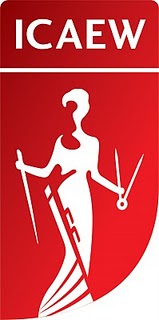Posted by Susanna Di Feliciantonio[1]
Public money matters. How governments manage it should be an issue that concerns all of us. In recent years, the debate has tended to focus on fiscal sustainability issues, as well as the role of financial reporting and public sector accounting. But improved public financial management cannot be achieved through improved reporting alone. Ultimately, it is public finance professionals who are at the heart of the system – and ICAEW (the Institute of Chartered Accountants in England and Wales) wanted to know how they feel about how well they are doing.
ICAEW recently commissioned a series of in-depth research interviews with selected senior finance professionals in ten EU member states, large and small, older and newer. We asked them to reflect on the public finance functions they operate, the challenges they face, and the changes that are taking place. The public finance ecosystem in Europe is a varied one, yet it is clear that professionals from the Czech Republic, Estonia, France, Germany, Greece, Italy, the Netherlands, Poland, Romania and Sweden face similar issues and challenges.
As our resulting Public Finances in Practice report shows, irrespective of political and constitutional systems, clarity in the roles and responsibilities of finance functions across government is needed to embed a culture of strong financial management and accountability. Ambiguity can lead to overlap between different parts of government, limit proper accountability, and undermine the effective delivery of public services. Clearer identification of roles and responsibilities is a critical step towards improved public finance management. It is equally important that financial information is presented in an understandable, innovative and user-friendly way.
Appointing a chief financial officer for government, as we recommended in an earlier publication, A CFO at the Cabinet Table? would also help. A CFO should have a clear idea of what financial information is needed on a daily basis, and be given the mandate to collect and use such information in an efficient and “joined-up” way across government.
Effective financial processes and systems require high quality and timely financial information. Progress has been made, but some concerns remain – from ensuring the quality of data (especially for countries not reporting on an accruals basis) to issues of consistency and consolidation. Our respondents also had their own wish lists, particularly when it comes to how financial information can be used to aid decision-making. They want to see, for instance, data used to improve forecasting, and to move towards performance-based budgeting.
Consolidation of financial information at central government level is also on our respondents’ wish lists, although some way off in the future for many. Looking even further ahead, the challenge will be to move towards a real-time picture of a government’s overall financial position. This requires investment, but the returns are significant. It would enable finance professionals – and policymakers – to see the bigger picture, taking into account all the government’s income and expenditure, assets and liabilities. It would also focus on areas that need active financial management, such as government’s future obligations, while enhancing the development and implementation of public policies.
It is perhaps not surprising that people issues received the most consistent feedback from our respondents. Issues of recruiting, training, and retaining high quality finance professionals are a challenge. It is time for many governments to undertake a full appraisal of the professional skills needed and to re-think the attractiveness of a career in government finance for skilled professionals. This means tackling issues to do with training, rewards, and career structure. It means exploring innovative approaches to create a work environment that is of interest to finance professionals. Employment policies need to encourage movement in and out of public administration so that it becomes normal for finance professionals to spend at least part of their career in public service. Greater engagement of public finance professionals in the inception, design and implementation of public policies, should be encouraged.
With public finances are under strain in many countries, in Europe and beyond, professional management of the public purse is critical. Public financial management in Europe is generally perceived as being well developed, albeit with important differences between individual countries. Yet, as is clear from the shared insights of the senior professionals we interviewed, there is always room for improvement. Given the size and complexity of the public sector, public financial management is inevitably challenging. But if governments are to meet both present and future challenges, they need to have in place best-in-class public finance functions.
We that hope our report will encourage an open conversation about how governments and international institutions can think harder and more creatively about how they resource and manage their finance functions across government and the public sector.
[1] Head of EU Affairs, Institute of Chartered Accountants in England and Wales (ICAEW).
Note: The posts on the IMF PFM Blog should not be reported as representing the views of the IMF. The views expressed are those of the authors and do not necessarily represent those of the IMF or IMF policy.







